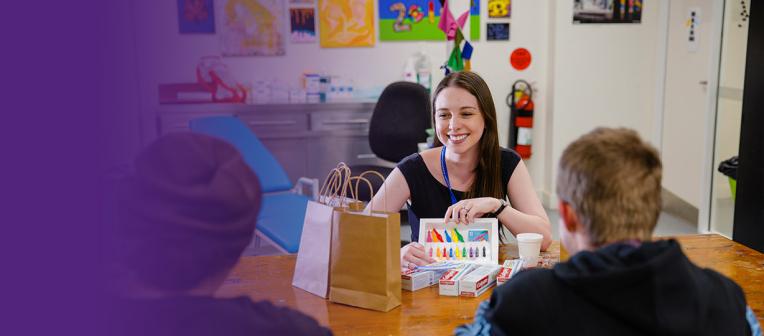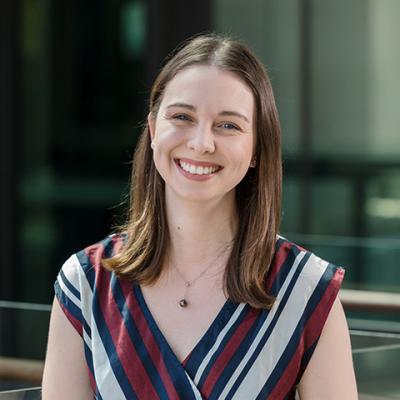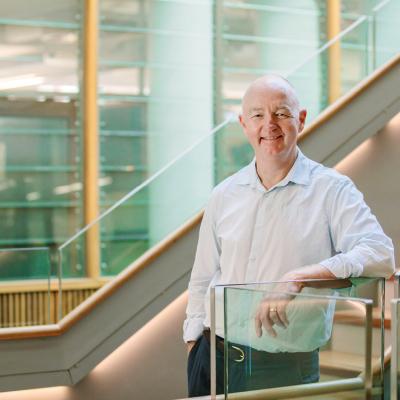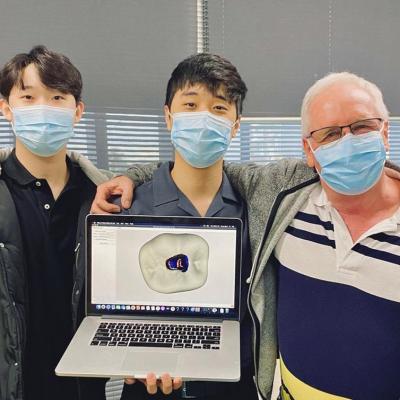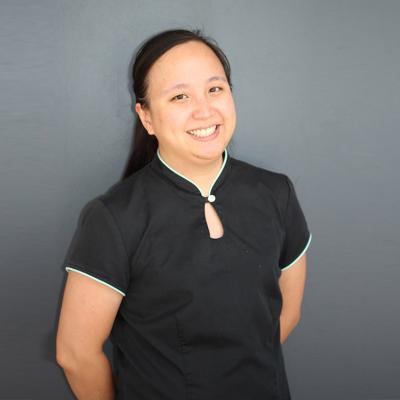An interest in children’s oral health and the dental health system is what fuels Dr Nicole Stormon’s research and role as an oral health therapist. Nicole endeavours to investigate and implement ways to change dentistry to help all Australians access care, regardless of their background.
What is an oral health therapist (OHT)?
An OHT is a registered dental professional who provides preventative, diagnostic and restorative dental care to all patients.
“When in clinical dental practice, I primarily work with Indigenous children, teaching them to look after their teeth, doing check-ups, fillings and extractions,” says Nicole.
“It’s a different adventure every day working in dental practice with children.”
While in clinical practice and through conducting research, Nicole observed that many people are denied adequate oral health care.
“This has a significant impact on daily life and is what led to my work in the field of dental public health research and undertaking my PhD,” she says.
“I completed my PhD in late 2020 and investigated social influences of children’s oral health in Australia."
"While completing my PhD, I also began teaching in the UQ Dentistry program.”
Nicole is currently a Lecturer at the UQ School of Dentistry and is the course coordinator for the first-year dentistry course. In this course, Nicole introduces students to the dental environment and teaches infection control, examination, and a variety of clinical dental procedures.
The role research plays in improving poor oral health
Nicole is passionate about improving the oral health of populations such as the socially and financially disadvantaged, people with special needs and Indigenous Australians through research.
“These populations have the poorest oral health, and it impacts their ability to socialise, work, eat and more,” she says.
“Everyone should be able to access dental services, no matter their background.”
Using mixed methods, Nicole has investigated cost-effective models of improving access to dental services for people experiencing homelessness. She has also used large national datasets, such as the Longitudinal Study of Australian Children and the Child Health Checkpoint studies, to investigate population-level oral health and social influences.
“I recently published a study using Longitudinal study data to investigate if a new federal funding policy, the Child Dental Benefits Schedule, improved population-level access to dental services,” she says.
“My collaborators and I found access to dental services improved in low-income children due to the implementation of the policy.”
She continues to investigate how this policy could be improved to increase children’s access to dental care and innovative ways to improve access to public sector dental services.
Community is crucial
The most rewarding part of what Nicole does comes from being in the community.
“I love meeting people from different backgrounds and helping them navigate access to dental services."
“Seeing individuals experiencing homelessness realise going to see a dental practitioner isn’t impossible and that their teeth can be fixed are some of the most rewarding moments I’ve ever experienced,” she says.
Professionally, meeting new students coming into dentistry and meeting others with similar passions to improve oral health access to care is also a very rewarding aspect of Nicole’s role at UQ.
Equipped for evolution
Nicole believes that graduates from UQ Dentistry will leave as lifelong learners and as dental professionals.
“Students get to look forward to navigating professional practice that evolves through scientific advances,” she says.
“As a dental professional, they will be providing care that is often geared to the community and will be equipped to be a caring and supportive health practitioner working in a multidisciplinary health team.”
Meet some other UQ academics or learn more about the Bachelor of Dental Science (Honours) or Doctor of Clinical Dentistry.

